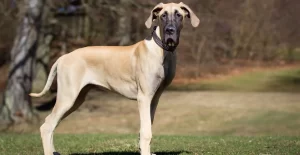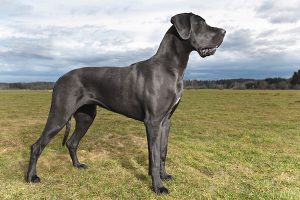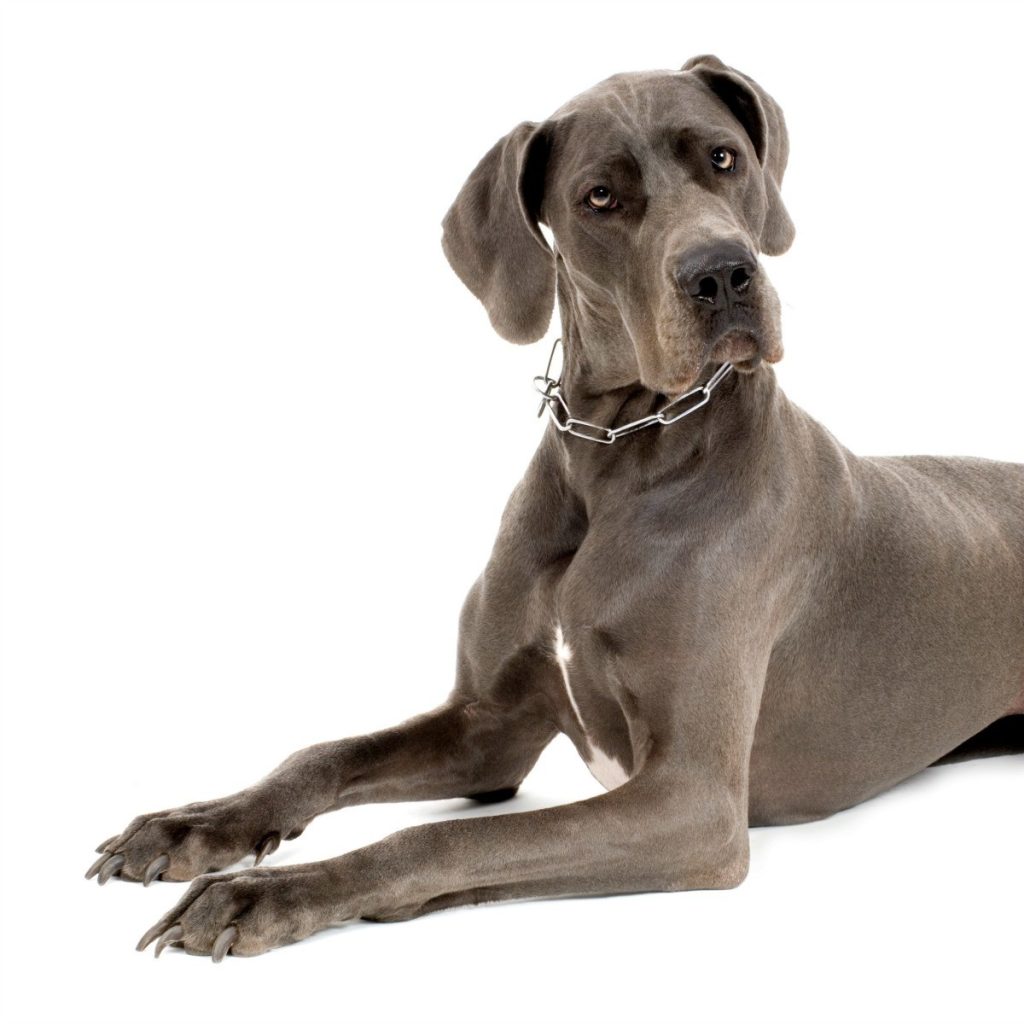Facts about Great Dane Dogs
The Great Dane is a giant and noble breed known for its imposing size, regal appearance, and gentle demeanor. Here’s an overview of the Great Dane:
Appearance
Great Danes are one of the largest dog breeds, known for their impressive stature and muscular build. They typically stand between 28 to 32 inches (71 to 81 cm) tall at the shoulder for males and 26 to 30 inches (66 to 76 cm) for females, with males weighing between 140 to 175 pounds (63 to 79 kg) and females between 110 to 140 pounds (50 to 63 kg).
Despite their massive size, Great Danes are well-proportioned and should maintain an overall balanced and athletic appearance. They have a deep chest, long legs, and a strong, graceful gait.
Great Danes have a short, sleek coat that comes in various colors, including fawn, brindle, blue, black, harlequin, and mantle. Their coat is easy to care for and requires minimal grooming.
Strengths
- Muscular Build: Great Danes have a powerful and muscular build, especially in their chest and legs. This physique gives them the physical strength needed for tasks like pulling, running, and jumping.
- Stamina: Despite their large size, Great Danes have impressive stamina. They were historically bred for hunting large game, which required endurance and strength over long distances. This endurance can be seen in their ability to sustain physical activity for extended periods.
- Determination: Great Danes are known for their determination and confidence. When they set their mind to a task, they can exhibit remarkable focus and persistence, showcasing their mental strength as well.
- Loyalty: Great Danes are incredibly loyal dogs. Their loyalty gives them inner strength, as they are often willing to protect and defend their families when needed, showing unwavering courage and resolve.
- Gentle Nature: Despite their strength, Great Danes are typically gentle and docile dogs. Their strength is tempered by their gentle demeanor, making them excellent companions and family pets.

Temperament
Great Danes are known for their gentle and affectionate nature. Despite their imposing size, they are often referred to as “gentle giants” due to their calm and friendly disposition.
They are loyal and devoted companions that form strong bonds with their families. Great Danes are affectionate and enjoy spending time with their loved ones, whether lounging on the couch or going for walks.
While Great Danes are generally good-natured and even-tempered, they may be reserved or wary around strangers. Early socialization is important to ensure they are well-adjusted and comfortable in various situations.
History
Great Danes have a long and storied history that dates back to ancient times. They were originally bred in Germany to hunt large game, such as wild boar and deer.
The breed’s ancestors were likely Mastiff-type dogs brought to Europe by the ancient Romans. Over time, they were selectively bred for their size, strength, and hunting prowess, leading to the development of the modern Great Dane.
Great Danes gained popularity among European nobility and were used as guard dogs and companions. They were later brought to other parts of the world, including the United States, where they became cherished family pets.
Care
Despite their large size, Great Danes are relatively low-maintenance dogs. They require regular exercise to keep them physically and mentally stimulated, but they are not overly active and enjoy lounging indoors.
Great Danes should have access to a large, secure yard where they can stretch their legs and explore. Daily walks and playtime are important for their overall well-being.
Due to their deep chest, Great Danes may be prone to a condition called bloat, or gastric torsion, which is a life-threatening emergency. Feeding them smaller, frequent meals and avoiding vigorous exercise immediately after eating can help reduce the risk.
Health
Great Danes have a relatively short lifespan compared to smaller dog breeds, typically ranging from 7 to 10 years. Like all breeds, they may be prone to certain health issues, including hip dysplasia, heart disease, and certain types of cancer.
Regular veterinary check-ups, a nutritious diet, and appropriate exercise can help maintain a Great Dane’s overall health and well-being. It’s important to work with a reputable breeder who screens for genetic health conditions to reduce the risk of inherited diseases.

Overall, Great Danes are majestic and gentle dogs known for their imposing size and loving nature. With proper care and socialization, they make excellent companions for individuals and families seeking a loyal and affectionate canine companion.
More posts you might be interested in:

